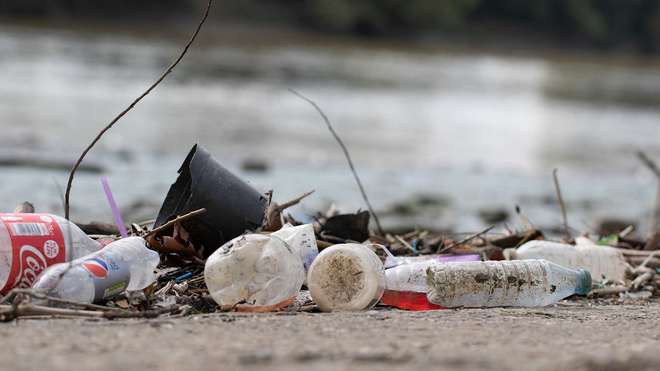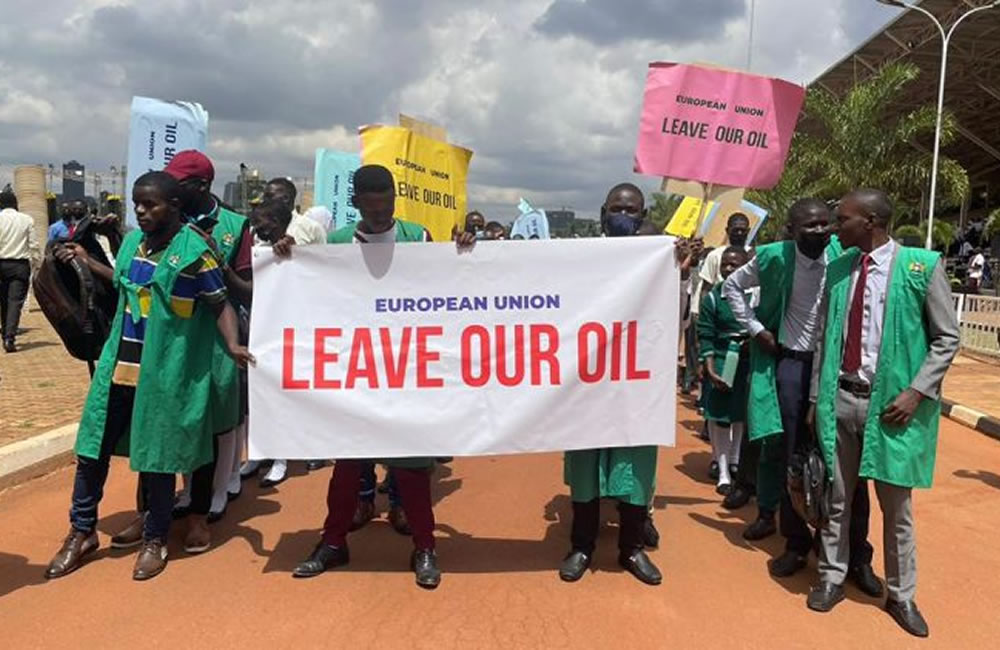The Albertine Graben Refinery Project in Hoima will be one of the big oil and gas infrastructure projects to look out for in 2023 in Uganda and Africa. The 60,000 barrels per day refinery is one of the 70 new oil and gas projects that are expected to take off in Africa during the year.
A U.S. group Albertine Graben Energy Consortium Partners (AGEC) has already agreed to take the USD 4.5 billion Final Investment Decision in the refinery raising hope that the project would finally take off after years.
A meeting in the US by President Museveni and Albertine Graben Refinery Consortium (AGRC), led by Rajakumari Jandhyala- President and CEO of YAATRA Africa agreed that negotiations on pending issues should commence with a view of concluding the deal.
A State House statement issued in early December said the Final Investment Decision (FID) to be taken by the East African Energy Security Transition Investment project is expected in 2023. Like elsewhere in the world, in negotiating the refinery project, Uganda will be faced with a number of difficult decisions. Among the tough decisions when considering the refinery will be the need to protect the environment and a secure, affordable, and low-carbon energy one.
The beginning of the year 2023 is likely to pave the way for a number of negotiations that once concluded and agreed to, then a Final Investment Decision (FIDS) will be taken by the investors. The government of Uganda has in the past been accused of being a rigid and tough negotiator. Could the ongoing debate about the energy transition see a change in the negotiation?
The negotiation of the agreements comes at a time when the longer-term trend of decarbonization is affecting oil and gas investment decisions globally. Earlier in the year, Petroleum Authority’s Executive Director, Ernest Rubondo told journalists that negotiations on the implementation and shareholder’s agreements were some of the pending issues related to the refinery project.
The other pending agreement relates to the crude oil supply agreement for the Uganda Oil Refinery Project. While the refinery is intended to supply crude for the local markets and that of east Africa, there should be a balance to ensure that the East African Crude Oil Pipeline is adequately supplied with crude
The investor in the refinery equally needs assurance that there will be enough crude (60,000 barrels per day ) of oil to keep the refinery operational as the bigger part of the crude will be exported through the East African Crude Oil Pipeline (EACOP).
In 2018, the Ministry of Energy and Mineral Development), signed a Project Framework Agreement (PFA) with Albertine Graben Energy Consortium (AGEC), in relation to the designing, financing, construction and operation of a 60,000 barrels per day refinery at Kabaale in Hoima district.
Environment laws and Regulations
An Environment Impacts Assessment (EIA) study for the project undertaken by a joint venture between DVCL consulting from Norway and Atacama Consulting Company had been completed by early 2022. The Front End Engineering Design(FEED) for the refinery has been completed by January 2022.
National Environment Management Authority was expected to have approved the EIA before the end of the year. Meanwhile, PAU’s Director in charge of Midstream Operations, Dozith Abeinomugisha in August confirmed to URN that the cabinet had reviewed the FEED and that the Refinery project was found to be safe, technically sound, and environmentally compliant.
An FID in 2023 is expected to usher the project toward the last miles with a Detailed Engineering, Procurement and Construction Phase. The Ministry of Energy hopes that Refinery will be commissioned in 2027 two years after the first oil in 2025.
It is not yet clear whether the investors have secured enough guarantees to finance the project. 2022 was particularly challenging for Uganda’s oil and gas projects like the East African Crude Oil Project and others. With the energy transition debate, a number of anti-fossil campaigners have been targeting some of the large banks from financing EACOP and the refinery projects.
Are major Banks willing to finance the refinery?
At the sidelines of the recent US- Africa leaders’ summit, President Museveni and the AGRC officials met with the Presidents and Chief Executive Officers of the Africa Finance Corporation (AFC) and Eastern and Southern Trade and Development Bank (TDB). It is not clear whether the two banking institutions gave the undertaking to finance the project.
PAU Executive Director, Ernest Rubondo said Uganda’s oil industry like the rest of the world is working to try to transition to a cleaner world. “Indeed as a result of that reduction of investment in the oil and gas sector, it could become difficult to find money to put into the investments.
But at the same time, the people and the banks that were investing in oil and banks are still available in the world. It means they can provide the services at a competitive price,” said Rubondo The Refineries challenge in Energy TransitionThe planned FID for Uganda’s refinery is expected at a time when oil majors and refiners are struggling to make a case for the construction of new refineries.
Some of the big refineries are also investing huge millions of dollars to convert to the production of petrochemicals instead of traditional fossils like jet fuel, kerosene and Heavy Fuel Oil (HFO). The shifts are due to the changing winds in favour of low carbons. Amidst the debate, it is not clear whether the refinery in Uganda which is designed to process crude oil into jet fuel, kerosene and Heavy Fuel Oil (HFO) will still be viable and match the emerging changes in the global refinery sector.
The Ugandan Refinery Study was undertaken by Foster Wheeler Energy Ltd (FW) in 2011. It had originally estimated that it would cost USD 3-4 billion but it is emerging that the investors are planning to invest up to USD 4.5 billion.
Foster Wheeler Energy Ltd.’s study demonstrated that constructing a refinery in Uganda presented a better economic return than building an export pipeline. Foster Wheeler Energy Ltd has projected that there would be a post-tax return of 33 per cent. In August, Lawyer, Sam Ahamya Butsya in an opinion piece warned of the likely danger of proceeding with the refinery as per Foster Wheeler Energy Ltd study 2011.
SAIPEM S.p.A conducted the Front-End Engineering Design (FEED) for the project suggested a complex refinery instead of a simple/modular refinery. PAU’s Dozith Abeinomugisha in reply to Sam Ahamya Butsya said the selected configuration of the refinery provided the flexibility of producing a fair balance between the main transportation fuels (Gasoline and diesel) and presented an opportunity for petrochemical industry development.
“The selected technology currently leads the global trend for the new refineries coming onboard the world over, due to its technical and economic robustness and high standard of environmental compliance,” reads part of the reply At the global level, studies have projected that refinery utilization is expected to drop in the key markets. Many refiners are reportedly considering shifting away from refining crude into mostly fuels and are instead looking to refine crude into chemicals.
One of those that have begun the transition is Saudi Aramco. Together with partner TotalEnergies in mid-December took an FID to build a USD 11-billion petrochemicals facility. The Amiral project will produce, ethylene, polyethene and naphtha. In the case of Uganda, Foster and Wheeler’s study seemed not in favour of naphtha.
“If naphtha is produced this will need to be exported as there is no demand in East Africa,” it said The General Manager of Uganda Refinery Holdings Company Ltd, Michael Nkambo Mugerwa told URN that the refinery was designed to process crude into petroleum products and a range of other products like plastics, some petrochemicals as well as nitrogen-based fertilizers.

